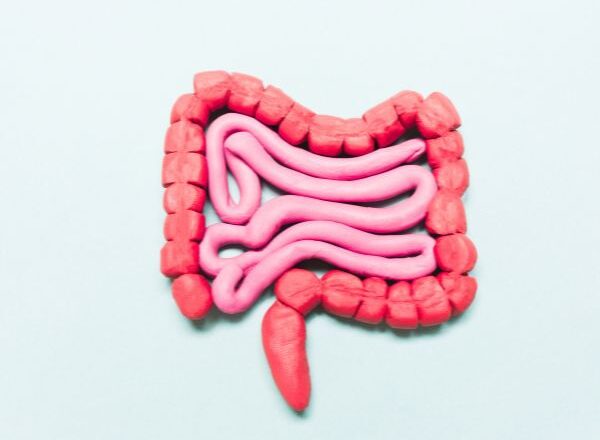Gastrointestinal conditions list: Recognise the signs early
Learn the critical signs of digestive health issues and take the first step towards effective treatment and management.
Gastrointestinal conditions list: Recognise the signs early
Learn the critical signs of digestive health issues and take the first step towards effective treatment and management.

Understanding gastrointestinal conditions and symptoms
Gastrointestinal conditions may range from mild inconveniences like indigestion to chronic disorders that demand ongoing care. These issues could disrupt the digestive system’s ability to process food and absorb nutrients, impacting overall health and well-being.
In Australia, approximately 20–30% of the population is affected by some form of gastrointestinal condition, accounting for nearly half of all specialist consultations. This highlights the critical need for early diagnosis and proactive management to potentially prevent complications.
A gastrointestinal conditions list includes symptoms such as abdominal pain, bloating, or diarrhoea that may seem minor initially but could signal deeper issues. Recognising and addressing these warning signs early may pave the way for better health outcomes and a more comfortable daily life.
Understanding gastrointestinal conditions and symptoms
Gastrointestinal conditions may range from mild inconveniences like indigestion to chronic disorders that demand ongoing care. These issues could disrupt the digestive system’s ability to process food and absorb nutrients, impacting overall health and well-being.
In Australia, approximately 20–30% of the population is affected by some form of gastrointestinal condition, accounting for nearly half of all specialist consultations. This highlights the critical need for early diagnosis and proactive management to potentially prevent complications.
A gastrointestinal conditions list includes symptoms such as abdominal pain, bloating, or diarrhoea that may seem minor initially but could signal deeper issues. Recognising and addressing these warning signs early may pave the way for better health outcomes and a more comfortable daily life.

Common gastrointestinal conditions list and their symptoms
A variety of gastrointestinal disorders may impact daily life, with each condition presenting unique symptoms. Here’s an overview of some common conditions and what to look for:
- Irritable bowel syndrome (IBS): A condition marked by abdominal pain, bloating, diarrhoea, or constipation. Symptoms are often triggered by stress, hormonal changes, or specific foods.
- Gastroesophageal reflux disease (GORD): Patients with this condition may present with persistent heartburn, regurgitation, and chest discomfort, often occurring after meals or when lying down.
- Inflammatory bowel disease (IBD): IBS includes Crohn’s disease and ulcerative colitis. These chronic conditions may cause symptoms of severe diarrhoea, abdominal pain, weight loss, and fatigue.
- Coeliac disease: An autoimmune condition triggered by gluten, patients with coeliac disease may have symptoms like diarrhoea, bloating, fatigue, and nutrient deficiencies.
Understanding the different symptoms associated with these gastrointestinal conditions may help you recognise symptoms and take the first step toward managing them effectively.

Common gastrointestinal conditions list and their symptoms
A variety of gastrointestinal disorders may impact daily life, with each condition presenting unique symptoms. Here’s an overview of some common conditions and what to look for:
- Irritable bowel syndrome (IBS): A condition marked by abdominal pain, bloating, diarrhoea, or constipation. Symptoms are often triggered by stress, hormonal changes, or specific foods.
- Gastroesophageal reflux disease (GORD): Patients with this condition may present with persistent heartburn, regurgitation, and chest discomfort, often occurring after meals or when lying down.
- Inflammatory bowel disease (IBD): IBS includes Crohn’s disease and ulcerative colitis. These chronic conditions may cause symptoms of severe diarrhoea, abdominal pain, weight loss, and fatigue.
- Coeliac disease: An autoimmune condition triggered by gluten, patients with coeliac disease may have symptoms like diarrhoea, bloating, fatigue, and nutrient deficiencies.
Understanding the different symptoms associated with these gastrointestinal conditions may help you recognise symptoms and take the first step toward managing them effectively.


Signs to pay attention to
Certain symptoms may indicate a more serious gastrointestinal issue. Recognising these warning signs early could prevent complications and improve treatment outcomes.
- Unexplained weight loss: Sudden weight loss without changes in diet or activity levels may point to conditions like IBD, coeliac disease, or gastrointestinal cancers.
- Persistent abdominal pain: Chronic or severe pain in the abdomen could suggest ulcers, gallstones, or other such underlying concerns requiring immediate attention.
- Blood in stool: This symptom may be linked to haemorrhoids, infections, or conditions like IBD, making it important to investigate the cause promptly.
- Chronic diarrhoea or constipation: Long-term or chronic digestive irregularities in the digestive tract may indicate disorders such as IBS, IBD, or food intolerances.
Monitoring and addressing these signs of gastrointestinal issues early helps with timely intervention and may lower the risk of severe complications in the long term.
Signs to pay attention to
Certain symptoms may indicate a more serious gastrointestinal issue. Recognising these warning signs early could prevent complications and improve treatment outcomes.
- Unexplained weight loss: Sudden weight loss without changes in diet or activity levels may point to conditions like IBD, coeliac disease, or gastrointestinal cancers.
- Persistent abdominal pain: Chronic or severe pain in the abdomen could suggest ulcers, gallstones, or other such underlying concerns requiring immediate attention.
- Blood in stool: This symptom may be linked to haemorrhoids, infections, or conditions like IBD, making it important to investigate the cause promptly.
- Chronic diarrhoea or constipation: Long-term or chronic digestive irregularities in the digestive tract may indicate disorders such as IBS, IBD, or food intolerances.
Monitoring and addressing these signs of gastrointestinal issues early helps with timely intervention and may lower the risk of severe complications in the long term.

Seeking professional help
If you notice persistent symptoms or suspect a gastrointestinal condition, consulting a healthcare professional is recommended. Proper diagnosis and tailored treatment plans may improve outcomes significantly.
- Diagnostic tests: Common procedures may include colonoscopies, endoscopies, and imaging scans. These tests could help identify abnormalities within the digestive tract.
- Consultation insights: During a medical consultation it’s important to provide detailed information about your symptoms, lifestyle, and family history to guide the diagnosis.
- Treatment strategies: Options may include dietary changes, medications, or surgery for severe cases. Early-stage GI conditions could benefit from non-invasive management.
Seeking medical advice for gastrointestinal issues may not only help in the confirmation of a diagnosis but also offer access to personalised treatment plans aimed at improving your quality of life.

Seeking professional help
If you notice persistent symptoms or suspect a gastrointestinal condition, consulting a healthcare professional is recommended. Proper diagnosis and tailored treatment plans may improve outcomes significantly.
- Diagnostic tests: Common procedures may include colonoscopies, endoscopies, and imaging scans. These tests could help identify abnormalities within the digestive tract.
- Consultation insights: During a medical consultation it’s important to provide detailed information about your symptoms, lifestyle, and family history to guide the diagnosis.
- Treatment strategies: Options may include dietary changes, medications, or surgery for severe cases. Early-stage GI conditions could benefit from non-invasive management.
Seeking medical advice for gastrointestinal issues may not only help in the confirmation of a diagnosis but also offer access to personalised treatment plans aimed at improving your quality of life.

Take control of your digestive health
Having a gastrointestinal conditions list that could easily be referred to and awareness of symptoms empowers individuals to seek timely medical advice and adopt healthier lifestyle choices. Identifying issues early may allow for timely intervention and effective management.
Don’t ignore any signs of discomfort in your gut. Reach out to a healthcare professional today.

Take control of your digestive health
Having a gastrointestinal conditions list that could easily be referred to and awareness of symptoms empowers individuals to seek timely medical advice and adopt healthier lifestyle choices. Identifying issues early may allow for timely intervention and effective management.
Don’t ignore any signs of discomfort in your gut. Reach out to a healthcare professional today.

FAQs
What are some lifestyle changes to manage gastrointestinal conditions?
Lifestyle adjustments may play a role in managing gastrointestinal conditions. Incorporating a high-fibre diet, staying hydrated, and avoiding known trigger foods may alleviate symptoms. Regular exercise and stress management techniques, such as meditation or yoga, may also benefit overall digestive health.
Are gastrointestinal conditions hereditary?
Some gastrointestinal conditions, such as coeliac disease and inflammatory bowel disease may have genetic links. A family history of these disorders may increase your risk, making routine check-ups and early screenings essential for prevention or early detection.
Could stress exacerbate digestive issues?
Yes, stress may significantly impact digestive health, triggering or worsening conditions like IBS and GORD. Implementing stress management strategies, such as counselling, relaxation techniques, or mindfulness exercises, may reduce symptom severity and frequency.
How do probiotics support digestive health?
Probiotics may help maintain a healthy gut microbiome, which could potentially help digestion and immunity. They may alleviate symptoms of certain gastrointestinal conditions by improving gut balance. Consult your doctor for advice on the best probiotic for your needs.
Take proactive steps and seek professional guidance to manage gastrointestinal conditions effectively and improve your overall health.
